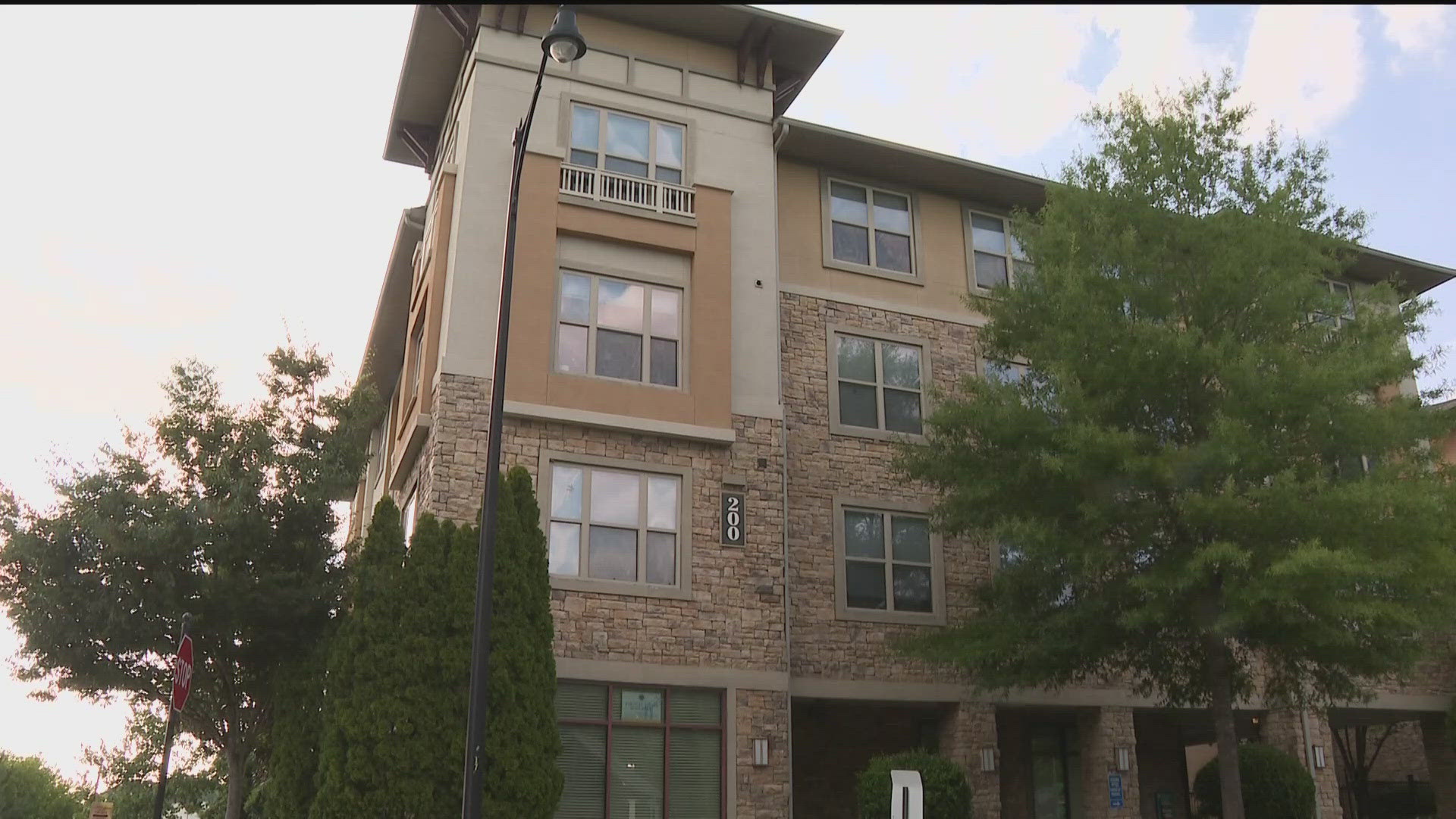ATLANTA — Denise Wiley works to survive. She lives with her mother in apartments that used to be the former site of Perry Homes, a government housing project. As someone who's survived eviction before, Wiley said she still struggles to pay rent and survive month to month.
"We survive wherever we go, whatever we need to do, that's what we do," Wiley said. "You don't keep up. You just pray that all is going to be well. You don't keep up. It's impossible, it's hard."
Landrea Murray, the coordinator of local nonprofit Star-C's eviction diversion program, works to help those who have been in similar shoes as Wiley. The program covers $7,000 in rental assistance per household, and the payments go directly to the landlord.
It initially started in 2020 as a $50,000 online fundraiser, and then the Atlanta City Council got involved to help out in 2023. According to a release by the city, more than $1.56 million of $2 million to for the initiative has been expended -- preventing the displacement of more than 220 families.
Murray called the need for financial assistance dire, with federal funds running out, pandemic-era restrictions loosening, and thousands of evictions happening every day.
Now, this week, the Atlanta City Council set aside $2 million to keep the program going.
"Our focus is working families, communities that are affordable housing and helping those families stay and remain housed, not face the difficult choice of 'should I eat' or 'should I stay housed,'" Murray said. "It’s to help them catch up if they’ve found themselves in arrears. We take the ledger, look at it and say here’s where you are and here’s what we can do to assist to help stabilize housing.”
Murray also said the 30318 zip code on Atlanta's westside receives the highest amount of eviction diversion rental assistance.
"It can be very difficult, especially for the families I'm seeing who have made plans; they are working and doing the best they can do, and their job reduces hours or a child gets sick," Murray said. “Things like that happen to all of us, but not all of us have the resources to make the intercession for when that occurs.”
In general, participants for this program must live in the City of Atlanta and earn at or below 60% of the area median income. That's about $43,000 for a one-person household or $62,000 for a family of four. Hardships covered include income reduction due to job loss or a reduction of hours and travel or medical-related emergencies.
Murray said applicants will need to provide personal information to receive financial assistance. Applicants will need a photo ID, the social security numbers for every member of their household, proof of employment income, proof of residence, their current tenant ledger or an account statement, along with a landlord verification form, plus proof of hardship.
"It's so important for people to stop, not put your head in the sand, so to speak, and ask for that assistance and reach out when you see yourself about to have a problem," Murray said. “Don’t be so thrown off by the notice that you don’t take action because the quicker you take action, the more likely we are to be able to assist.”
Meanwhile, Wiley is working to avoid eviction again, survive and help others along the way.
“If you don’t have proper structure, you can’t function," Wiley said. "You can’t go to work; you can’t even be at home and not have a job because you’re worrying. We know that worry and stress bring on ailments in the body. I think unity will be a very good place to start, along with other things like resources and coming together."

